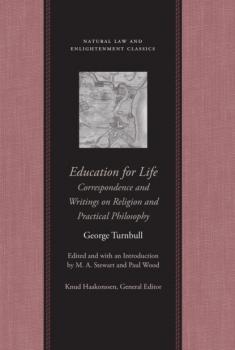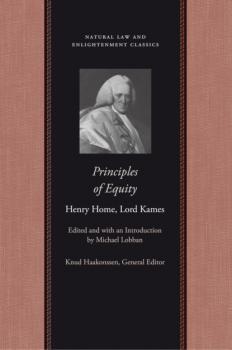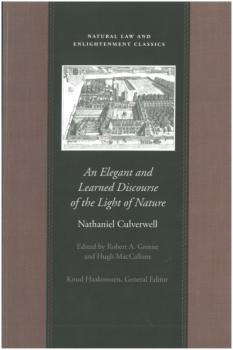ТОП просматриваемых книг сайта:
Философия
Различные книги в жанре Философия, доступные для чтения и скачиванияVindiciae Gallicae and Other Writings on the French Revolution - James Mackintosh
Natural Law and Enlightenment ClassicsАннотация
Vindiciae Gallicae was James Mackintosh’s first major publication, a contribution to the debate begun by Edmund Burke’s Reflections on the Revolution in France. The success of Mackintosh’s defense of the French Revolution propelled him into the heart of London Whig circles. Following the September 1792 massacres Mackintosh, along with other moderate Whigs, revised his opinions and moved closer to Burke’s position. The Liberty Fund edition also includes Mackintosh’s Discourse on the Law of Nature and Nations, Letter to William Pitt, and On the State of France in 1815.James Mackintosh (1765–1832) was a prominent Scottish Whig.Donald Winch is Research Professor in the School of Humanities at the University of Sussex and a Fellow of the British Academy. Please note: This title is available as an ebook for purchase on Amazon, Barnes and Noble, and iTunes.
Аннотация
George Turnbull belongs with a group of early Scottish Enlightenment thinkers, including Francis Hutcheson, who found their native Calvinism too repressive. They sought to relocate religion within a context of reason and science and to establish a tolerant and humane ethic upon values rooted in classical ideals.In a distinctive voice, Turnbull presented natural-law theory “scientifically,” harnessed the arts to promote moral and civil virtue, and extolled reason as the foundation of liberty. The works in this volume exhibit the close interrelations between these concerns and show him as a paradigmatic “Enlightenment” figure. This extremely rare material includes two Aberdeen graduation theses, three tracts on religion, various writings on education and art, and, for the first time in print, the correspondence of Turnbull.George Turnbull (1698–1748) was born in Scotland and ordained into the Church of England in 1739. A key figure in the Scottish Enlightenment, he taught moral philosophy at Marischal College, Aberdeen, where one of his pupils was Thomas Reid, who became the main representative of the Scottish Common Sense philosophy.M. A. Stewart is Honorary Research Professor in the History of Philosophy at the Universities of Lancaster and Aberdeen.Paul Wood is Professor of History at the University of Victoria.Please note: This title is available as an ebook for purchase on Amazon, Barnes and Noble, and iTunes.
Аннотация
Henry Home, Lord Kames, was the complete “Enlightenment man,” concerned with the full spectrum of human knowleEAe and its social use. However, as a lawyer and, after 1752, as a juEAe on the Court of Session in Edinburgh, he made many of his most distinctive contributions through his works on the nature of law and legal development.Principles of Equity, first published in 1760, is considered his most lasting contribution to jurisprudence and is still cited. In his jurisprudence, Kames specifically sought to explain the distinction between the nature of equity and common law and to address related questions, such as whether equity should be bound by rules and whether there should be separate courts of law and equity.Beginning with a general introduction on the rise and nature of equity, Principles of Equity is divided into three books. The first two, “theoretical,” books examine the powers of a court of equity as derived from justice and from utility, the two great principles Kames felt governed equity. The third book aims to be more practical, showing the application of these powers to several subjects, such as bankrupts. Kames drew his illustrations of the principles of equity from the case law of the Court of Session as well as the English Chancery, both because he felt that the rules of equity must be the same in every country where law was cultivated, and because he hoped his work might promote a closer union between the law of the two kingdoms. Principles of Equityis significant as an example of the approach of an Enlightenment thinker to practical legal questions and as an early attempt to reduce law to principles. Kames himself saw this as his most important work, and scholars both of his theory and of the broader Scottish Enlightenment will find it gives essential insights into the thought of this central figure. There is evidence that this book was well known in the formative years of the United States and that both Benjamin Franklin and Thomas Jefferson were familiar with Kames’s treatise.Henry Home, Lord Kames (1696–1762) was one of the leaders of the Scottish Enlightenment.Michael Lobban is Professor of Legal History at Queen Mary, University of London. Please note: This title is available as an ebook for purchase on Amazon, Barnes and Noble, and iTunes.
Аннотация
Francisco Suárez (1548–1617) was the greatest metaphysician and moral theorist of sixteenth- and seventeenth-century scholasticism. Suárez is of particular importance as a theorist of natural law and of rights, for his work combines expertise in moral theory with a mastery of civil and ecclesiastical jurisprudence and a sophisticated theory of the human person.The bulk of the selections in this volume are from A Treatise on Laws and God the Lawgiver (1612), “one of the major works of scholastic moral and legal theory,” writes volume editor Thomas Pink. In the Treatise, working within the framework originally elaborated by Thomas Aquinas, Suárez presented a systematic account of human moral activity in all its dimensions, synthesizing the entire scholastic heritage of thinking on this topic and identifying the key issues of debate and the key authors who had formulated the different positions most incisively. Then he went beyond this heritage of authorities to present a new account of human moral action and its relationship to the law.The second selection is from A Defence of the Catholic and Apostolic Faith (1613), a treatise on the errors of Anglicanism and, in particular, on the errors of King James I in relation to the power of the king in temporal matters and the power of the pope to intervene in the cause of religion. The selections in the final section, A Work on the Three Theological Virtues (1621), are taken from Suárez’s accounts of faith and love, and they concern the conversion of unbelievers and the conditions of a just war.The translations in this volume were originally published by the Carnegie Endowment for International Peace. Now republished with a new introduction, revisions to some of the existing notes, and additional notes, these selections are again available in English for those interested in the ethical and metaphysical foundations of political authority and the right to liberty. The texts are of special interest to historians of religious liberty, toleration, and coercion as a classic account of the coercive authority in matters of faith and religious practice of the Catholic church.Thomas Pink is Professor of Philosophy at King’s College London. Some of his publications include Free Will: A Very Short Introduction and The Will and Human Action: From Antiquity to the Present Day.Please note: This title is available as an ebook for purchase on Amazon, Barnes and Noble, and iTunes.
Аннотация
An Historical View of the English Government traces the development of the “great outlines of the English constitution”—the history of institutions of English liberty from Saxon antiquity to the revolution settlement of 1689. Millar demonstrates serious concern for the maintenance of liberties achieved through revolution and maintains that the manners of a commercial nation, while particularly suited to personal and political liberty, are not such as to secure liberty forever.John Millar (1735–1801) attended Adam Smith’s lectures at the University of Glasgow and later became a distinguished professor of law there.Mark Salber Phillips is Professor of History at Carleton University in Ottawa.Dale R. Smith completed his doctorate in history at the University of British Columbia. Please note: This title is available as an ebook for purchase on Amazon, Barnes and Noble, and iTunes.
Аннотация
The works found in Essays on Church, State, and Politics, which originated as disputations, theses, and pamphlets, were direct interventions in the unresolved issue of the political role of religion in Brandenburg-Prussia, a state in which a Calvinist dynasty ruled over a largely Lutheran population and nobility as well as a significant Catholic minority.Christian Thomasius (1655–1728) was a German philosopher and legal theorist.Ian Hunter is Australian Professorial Fellow at the Centre for the History of European Discourses, University of Queensland, Australia.Thomas Ahnert is a Senior Lecturer in History at the University of Edinburgh.Frank Grunert is Scientific Collaborator at the Institut für Deutsche Philologie, Ludwig-Maximilians Universität, Munich.Please note: This title is available as an ebook for purchase on Amazon, Barnes and Noble, and iTunes.
An Elegant and Learned Discourse of the Light of Nature - Nathaniel Culverwell
Natural Law and Enlightenment ClassicsАннотация
An Elegant and Learned Discourse of the Light of Nature is a concerted effort at intellectual mediation in the deep religious dispute of the English civil war in the seventeenth century. On one side was the antinomian assertion of extreme Calvinists that the elect were redeemed by God’s free grace and thereby free from ordinary moral obligations. Opposite to that was the Arminian rejection of predestination and assertion that Christ died for all, not just for the elect.Robert A. Greene is Professor of English at the University of Massachusetts at Boston.Hugh MacCallum was Professor Emeritus of English at the University of Toronto. Please note: This title is available as an ebook for purchase on Amazon and Barnes and Noble.
Philosophiae Moralis Institutio Compendiaria, with A Short Introduction to Moral Philosophy - Francis Hutcheson
Natural Law and Enlightenment ClassicsАннотация
In this new, dual-language edition, Hutcheson’s Latin Philosophiae Moralis Institutio Compendiaria is presented on facing pages with its English translation, A Short Introduction to Moral Philosophy, together with all the relevant alterations of the 1745 edition relating to the 1742 edition of the Institutio, including all the omissions and additions by the translator in the Short Introduction.Francis Hutcheson (1694–1746) was educated at the University of Glasgow, where he assumed the chair of moral philosophy in 1729.Luigi Turco is Professor of Philosophy at the University of Bologna. Please note: This title is available as an ebook for purchase on Amazon, Barnes and Noble, and iTunes.
Logic, Metaphysics, and the Natural Sociability of Mankind - Francis Hutcheson
Natural Law and Enlightenment ClassicsАннотация
Until the publication of this Liberty Fund edition, all but one of the works contained in Logic, Metaphysics, and the Natural Sociability of Mankind were available only in Latin. This milestone English translation will provide a general audience with insight into Hutcheson’s thought.Francis Hutcheson (1694–1746) was educated at the University of Glasgow, where he assumed the chair of moral philosophy in 1729.James Moore is Emeritus Professor of Political Science at Concordia University in Montreal.Michael Silverthorne is Honorary University Fellow in the School of Classics at the University of Exeter. Please note: This title is available as an ebook for purchase on Amazon, Barnes and Noble, and iTunes.










